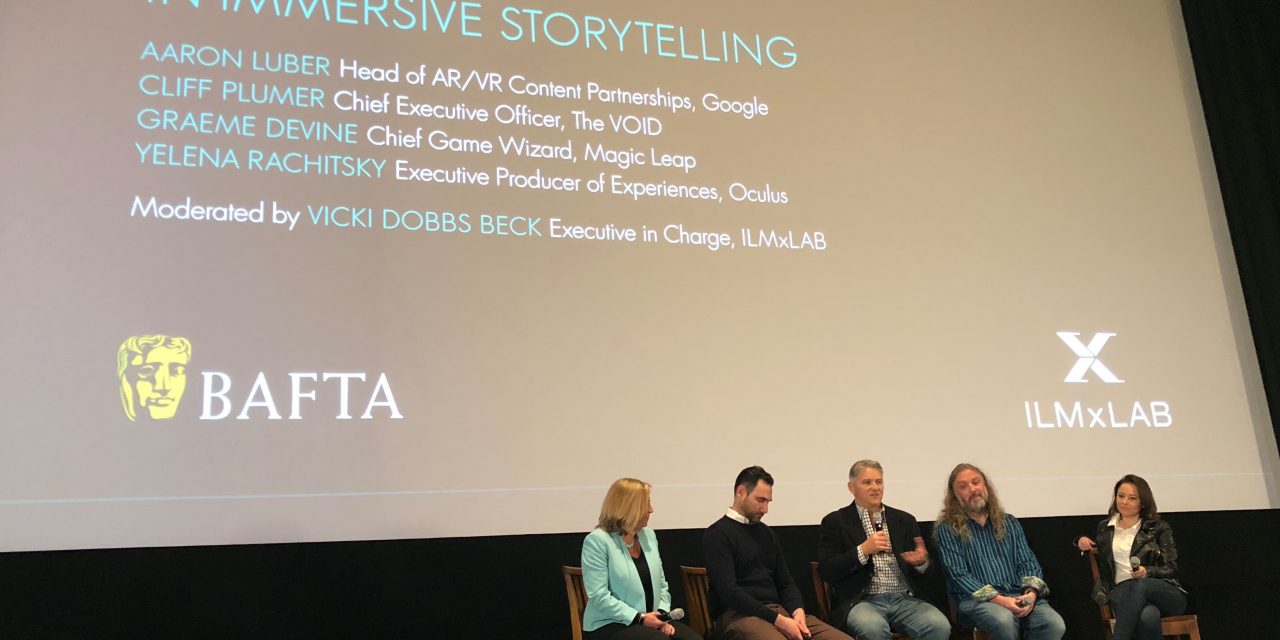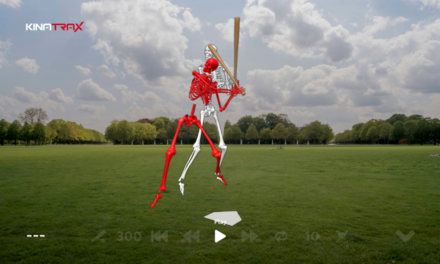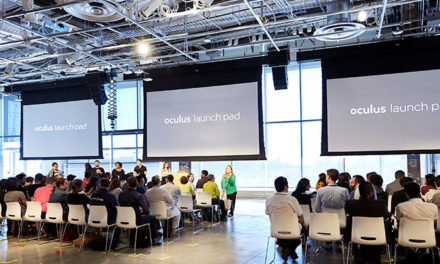The gaming and entertainment industries have laid the foundation for immersive storytelling with other industries adopting as the technology becomes more mainstream. Those entrenched in the world of extended realities have interesting insight into what they believe the future holds in the immersive technology industry. From empathy immersion to actually using VR to bring presence back into daily life, the implications are countless. What do you hope the future holds as it relates to technology in our day to day lives?
During this year’s Game Developers Conference, ILMxLAB partnered with the British Academy of Film and Television to host an intimate conversation about the future of immersive storytelling at Lucasfilm headquarters.
To kick off the night, ILMxLAB executive in charge Vickie Dobbs Beck talked about her team and why it was created in 2015. She said that one of their goals from the beginning was to let people “step inside our stories like never before.”
“We believe that the future will be all shades of reality. Ideally, these experiences will not be adaptations, but wholly unique experiences designed for the strengths of individual platforms. … Some day, it’ll be a living world, where stories unfold — [what we call] story-living. It’ll be dynamic, personal, social, and maybe even transformational,” Beck told the audience.
In the latter half of the night, Beck moderated a brief panel discussion between Aaron Luber (Google’s head of AR/VR content partnerships), Cliff Plumer (CEO of VR company The Void), Yelena Rachitsky (executive producer of experiences at Oculus), and Magic Leap chief game wizard Graeme Devine. She asked them two deceptively simple questions: What excites you the most about VR, AR, and mixed reality in the next two years? And the next five years? Their responses ranged from the practical (new hardware releases) to the existential (the social responsibility that creators need to have). Here’s a round-up of their most thought-provoking answers.
Plumer said the power of hyper-reality became clear when a wheelchair-bound woman participated in one of their experiences. At first, she wasn’t sure if she wanted to try it out. But after she went through with it, she came out in tears. When the staff asked if she was okay, she told them she was crying because it was the first time she was able to walk with her friends.
“It just shows the power of what we’re creating. So as we’re working on new experiences and thinking about how the audience is going to respond, that is going to keep pushing us,” said Plumer.
Devine, who worked in gaming for 40 years before joining Magic Leap, was more interested in discussing the long-term prospects of the industry. One aspect that he loves about VR is the power of presence. When you’re in VR, he explained, it’s impossible to distract yourself with your phone because the headset requires your full attention. He hopes to translate that sense of presence back into real life with augmented reality.
“My mission for the next five years is to stop people from [looking down at their phones] and start having them look up back into the real world. And that’s incredibly difficult because they’re really addictive! … I’m saying ‘No, come up and be involved in the real world again.’ We’ll add enough context to it, we’ll add enough interesting elements to it that you won’t want to [look away],” said Devine.
At the same time, he doesn’t want a future where AR just overloads people with even more information and entertainment. If done right, he said these devices can enhance our lives in “very subtle ways.”
“I want the future to be mostly reality, with a little bit of everyday adventure added to my life. … My trip to Starbucks is more interesting because I’m in [mixed reality] and I helped Han Solo do something along the way. My trip to school is more interesting because I’m secretly an Empire spy and I’m spying on the Rebels,” Devine added.
“We’re dealing with a very powerful piece of technology across all these different mediums. It’s very responsible for us right now to be thinking down the road about those sorts of things and how we can hopefully do more things for good,” Plumer concluded.
Immersive storytelling’s future is in ‘all shades of reality’
Image: ILMxLAB and BAFTA partnered up for a one-night event.






